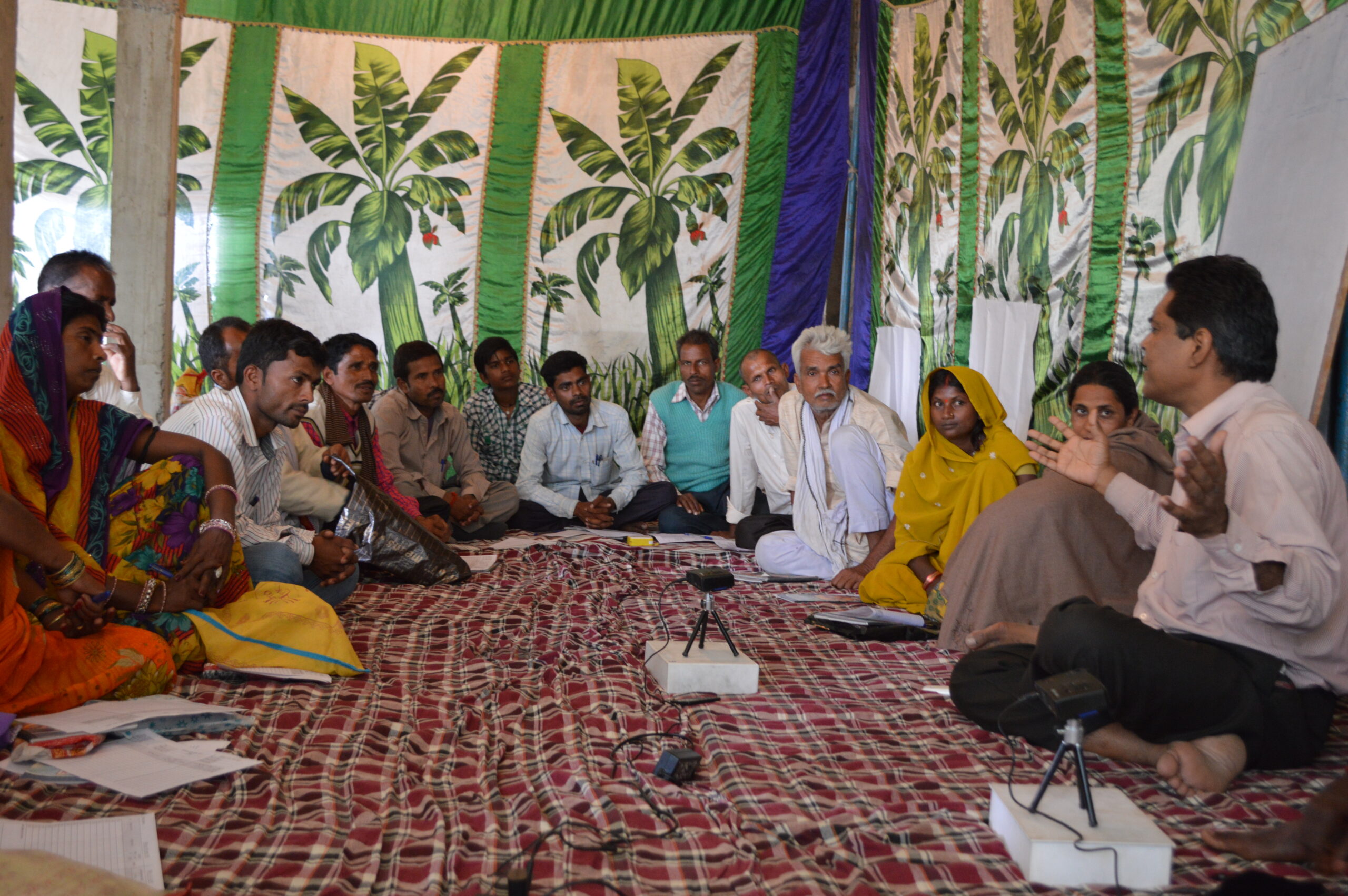To learn more about Digital Green’s AI-powered platform and how it impacts small-scale farmers in India, Ethiopia, Kenya, Nigeria and Brazil, we encourage you to sign up for our newsletter.
Despatch from the field – Experiences from Gopalganj and West Champaran, Bihar, India

Contributed by Rishiraj Shukla, Assistant Program Manager, Digital Green
—
Digital Green and JEEViKA or government-led Bihar Rural Livelihoods Project have been partners for the last three years, using an ICT-enabled collective learning approach to promote best practices among rural community groups . I recently joined the Digital Green team and have been witness to the scale and depth of the partnership, specifically in two districts,Gopalganj and West Champaran.
At times we often come across people who are willing to learn and adapt to new things without any training or knowhow. These videos on system of rice intensification have made my work easier, I learnt so much from them. Now I am confident that I can deliver the same on the field, says Mr. Abhishek K. Singh who happens to be the JEEViKA livelihood specialist of Narkatiyaganj block of West Champaran. Initially he had no clue about this method of rice farming and hence, was worried about how to implement the practice in the field. Watching the videos helped him in understanding the practice and appreciate its benefits. Abhishek then guided village resource persons on effectively screening the videos in their respective villages, educating the farmers about the practice and how it could increase their yield.

A review meeting at Kuchaikote, one of the blocks in Gopalganj district, could serve as an apt illustration of the relationship between Digital Green and JEEViKA. Things cannot be taken for granted; we will have to work hard, if we want results, said Rajnish Kumar, Livelihood Specialist, JEEViKA, taking the lead during the whole review meeting, motivating the village-level functionaries to go the extra mile in producing quality videos and screening them effectively.Rajnish also shared some great ideas about the videos that can be produced in the region. He was quite excited about the fact that the video production team would be based in the district, which meant that the community would get to see videos in the local language, Bhojpuri, helping them connect better and adopt the agriculture practices shown in those videos.
Contrary to stereotypical notions of tardy government systems, my observation of field-level JEEViKA operations have been largely inspiring. We had requested the district project manager of Gopalganj to procure a video camera for the district so that a video production team could be set up. Within the span of a month, a video camera was purchased and 10,000 copies of merged formats for dissemination and adoption were printed and delivered to the respective blocks. The district project manager at Gopalganj is extremely active and has also helped his counterpart in Nalanda district in procuring a video camera for his district. Our experience with the district project manager at West Champaran has been similar; he has been extremely helpful and responsive to process improvements.
Digital Green, through its ICT-enabled approach, not only strengthens its partners capacity to develop and deliver services in the field of agriculture, but also enables farmers to effectively engage with the government, setting in motion powerful mechanisms for their participation and their engagement. A partnership is based on a common consensus and each partner can work and function smoothly only if they get adequate support from each other. The Digital Green – JEEViKA is an example of a healthy partnership which continues to evolve.
I found the JEEViKA staff at the district level as well as at the block level very approachable. They acknowledge the role of Digital Green in helping them mobilize and build the capacity of village resource persons to deliver information effectively.
To the lay reader, some of these details might seem mundane and simple but these traits and aspects make a huge difference, while working in partnership to roll out community-centric interventions.There is no shortcut if we want our farmers especially small scale farmers to adopt the best practices in agriculture for improved and sustainable livelihoods and for better agricultural output. There is much scope for improvement of such partnership. There is a constant and consistent need for proper monitoring and evaluation and to realize the goals we have set for ourselves, we will have to be accountable to each other, and most importantly to the farmers and the rural communities for whom we work.